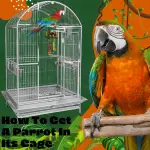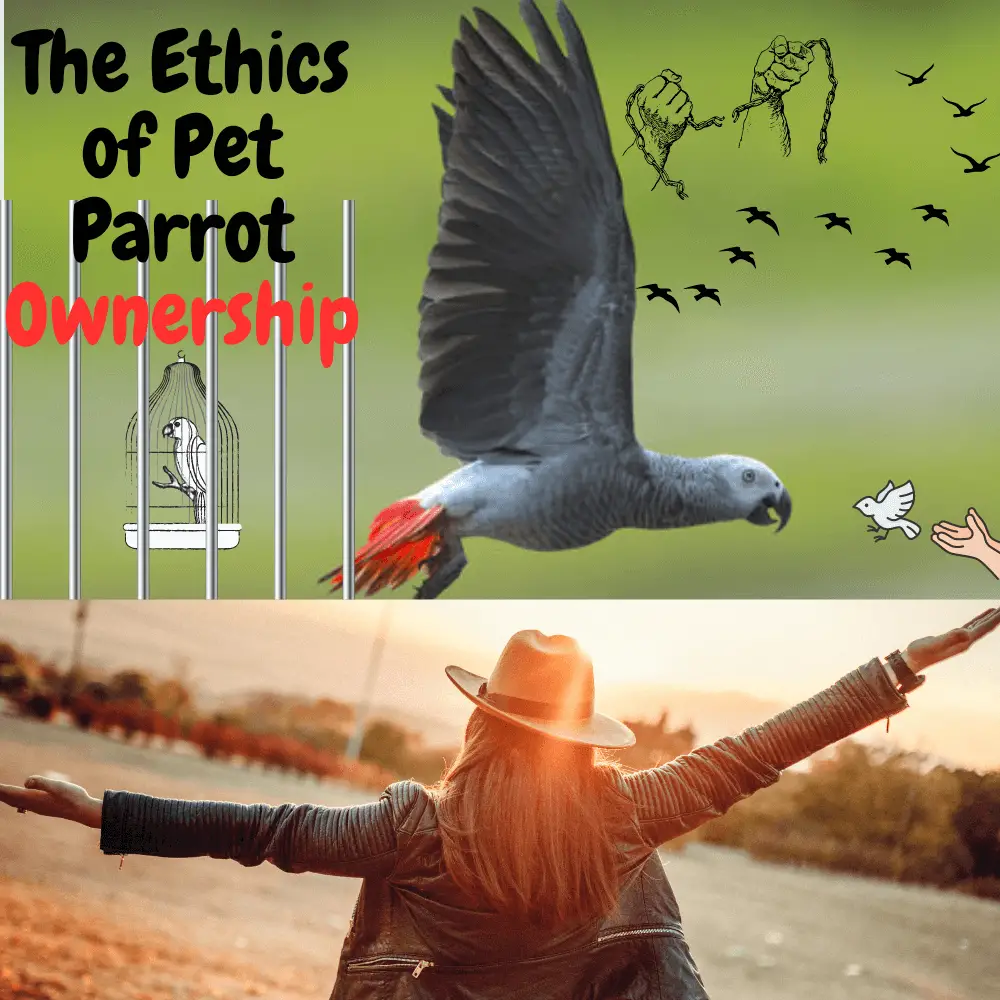- Keeping birds as pets is cruel.
- Pet birds should be released.
- Parrots has no place in cages or in our homes.
- People who keep birds are ignorant.
And so on. I even met an individual who seemed to think that keeping pet birds or caged birds was a purely evil act.
Perhaps our ancestors should have admired the birds from afar and left them in the wild. However, they brought them home, raised them, and made them grow, and in doing so, they took away their ability to survive in the wild. Today, we are responsible for the safety of these birds.
The Ethics of Pet Parrot Ownership
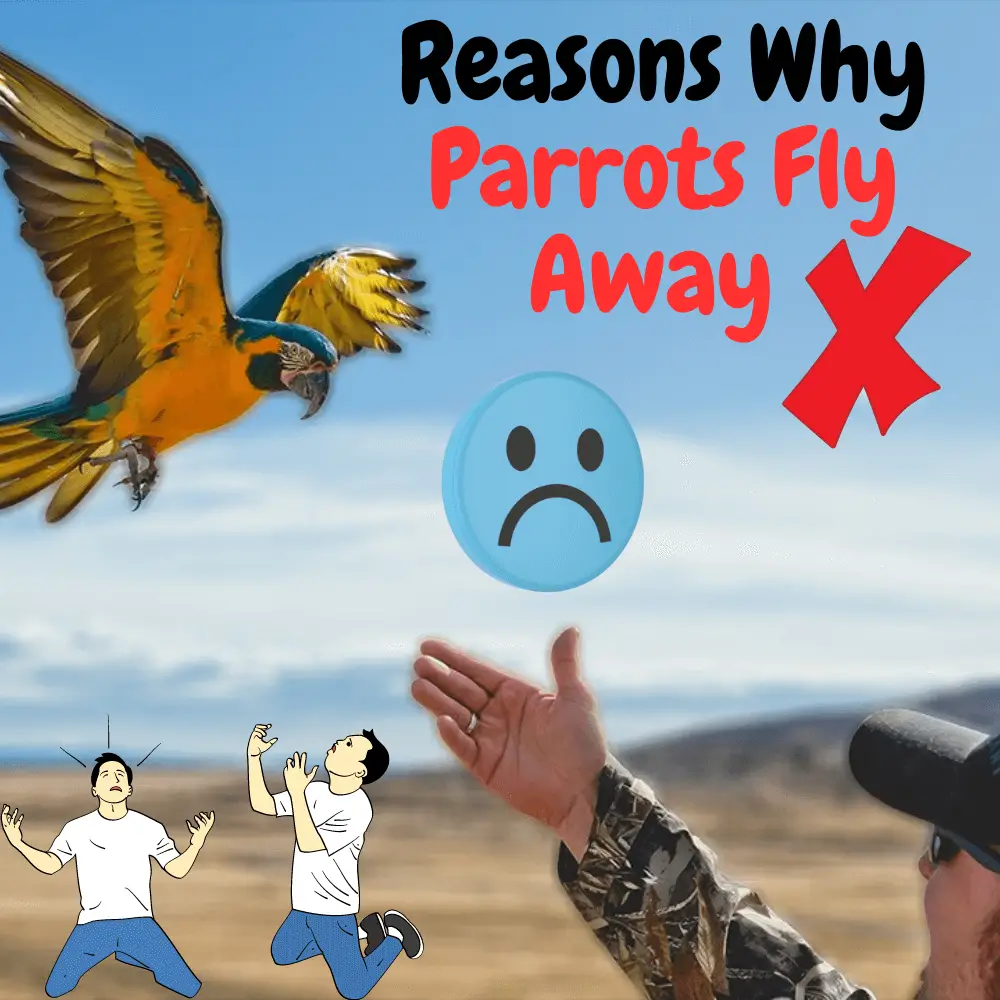
Wild Parrots
Let me first explain this: I don’t believe you should remove a wild bird from its natural habitat and put it in a house or zoo (unless the bird has a permanent injury that makes it unable to survive in the wild*). Capturing a healthy wild parrots is like kidnapping. This stresses the bird and contributes to the decline of wild bird populations.
Don’t take a bird out of the wild and make it your pet, and don’t support those who do by buying one of these birds. There are already too many captive-bred birds that need a home, so if you want a bird, please adopt a bird that is already used to living in captivity.
*If you find a wild bird that appears sick or injured, please contact a wildlife rehabilitation center or licensed nature center for advice.
Why can’t you let them go?
When people say that no one should keep pet birds, I always ask them what they think should happen to birds that are already pets. More often than not, the answer I hear is “Free them.”
Pet Parrots do not have the skills to survive in the wild
Parrots that have been raised with humans simply do not know how to be wild Parrots. They are not used to facing time. They don’t know how to look for their own food. They never learned to be wary of predators, and if they lived in a house with a friendly cat or dog, they might make the fatal mistake of assuming that any dog or cat is friendly. All of this means that if you release one of these birds, you will likely condemn it to a horrific death. Is it really better for the bird?
Pet Parrots bond with their human flock
Also, keep in mind that many species of pet birds are as intelligent as young children and form strong bonds with members of their human flock. Sending them to fend for themselves causes them separation grief and anxiety. Imagine the terror a 4-year-old would feel if you sent him to live alone. That’s pretty much how a beloved and well-groomed domestic parrot would feel.
I volunteer at a wildlife rehabilitation center where I work with all kinds of birds. People sometimes bring us parakeets, lovebirds, cockatiels, and white doves that they have found in their yards. These birds have obviously been pets and they come to us stressed, confused, and upset. We do not know if they were “released” or if they came out through an open door. What we do know is that we have to try to find their owners or get them into new homes because they are what we call “non-releasable” – meaning they usually can’t survive in the wild.
The Ethics of Pet Parrot Ownership
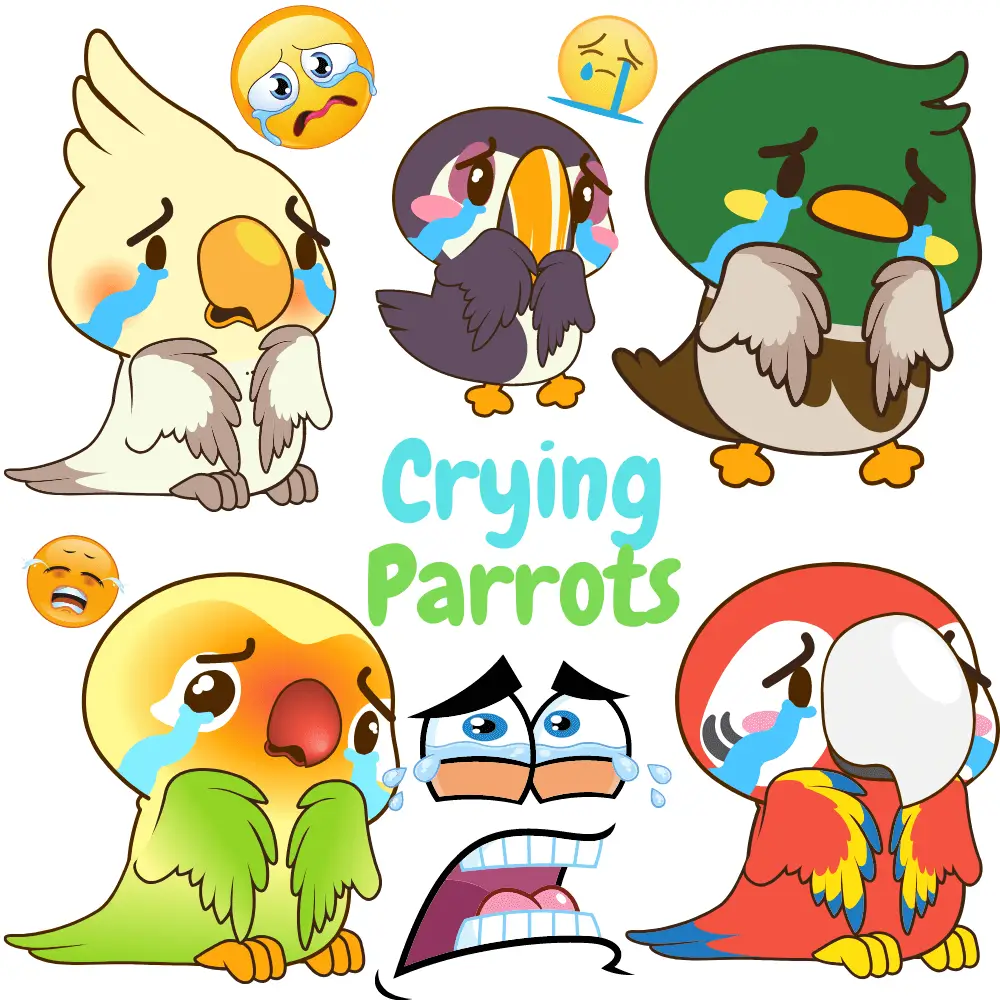
What can we do to keep our pet Parrots happy?
Bringing a parrot to your family is a huge responsibility, and it’s something that shouldn’t be taken lightly. As with any pet, you need to do your research before adopting your parrot. Different species of birds have different needs, but in general:
- Make sure your parrot cage is large enough to give it enough space to fly, jump and/or climb.
- Provide toys. Most parrot-type birds love puzzle toys and chew toys. Try different types of toys to see what your bird’s favorite type is, and make sure they always have some available. Inspect toys regularly for damage or hazards (sharp pieces of metal, frayed strings that could get tangled in, etc.)
- Let your parrot out of the cage every day. The time required varies from bird to bird, but allow a minimum of a few hours (several hours if you have a larger or more active parrot such as a macaw or African eagle). The door to my cockatiel cage is opened whenever I’m home and awake, so he can go out if he wants to (I close the door when I’m not home for his own safety). Some people let their birds roam freely around the house at all times, and the cages are mainly used for sleeping. If you choose to go this route, you need to make sure your entire home is safe from danger, and you should always look where you put your feet and look before you sit down. This method is also dangerous if you have dogs or cats unless you can keep your pets in separate places in the house.
- Keep the cage clean. Change the papers and clean the stain daily. Wipe the cage and perches well with unscented soap and water weekly, and take everything out for thorough cleaning and disinfection at least once a month (more often if your bird is particularly dirty).
- Interact with your bird. Finches and canaries don’t need human interaction, but it’s important for doves and vital for any type of parrot. Talk to your bird, whistle with it, play with it, let it cuddle under your chin while you watch TV, etc. If your bird is new to the house and is still learning to trust you, stay close to him while you read or use the computer. If your schedule doesn’t leave you much time for interaction, you may want to consider taking a second bird so it doesn’t feel lonely.
- Watch out for any signs of stress or anxiety, such as plucking or screaming. Sometimes the cause is obvious (your schedule changes, a family member has moved, your new neighbors are noisy, etc. In any case, a consultation with your avian veterinarian may be necessary in order to rule out any medical cause and help your bird adapt.
- Provide a balanced diet. A mixture of bird seeds from the pet store is usually not enough. Include formulated pellets, whole grains, and fruits and vegetables.
There are bad bird owners who keep their birds caged 24/24 and don’t take the time to interact with them (my own cockatiel was saved from such a situation). I think that’s the image that a lot of people who are against keeping pet birds have in mind. However, there are also many GOOD responsible bird owners who offer a lot of interaction, love, and exercise. These bird owners should not be judged on the behavior of the bad ones.
The Ethics of Pet Parrot Ownership
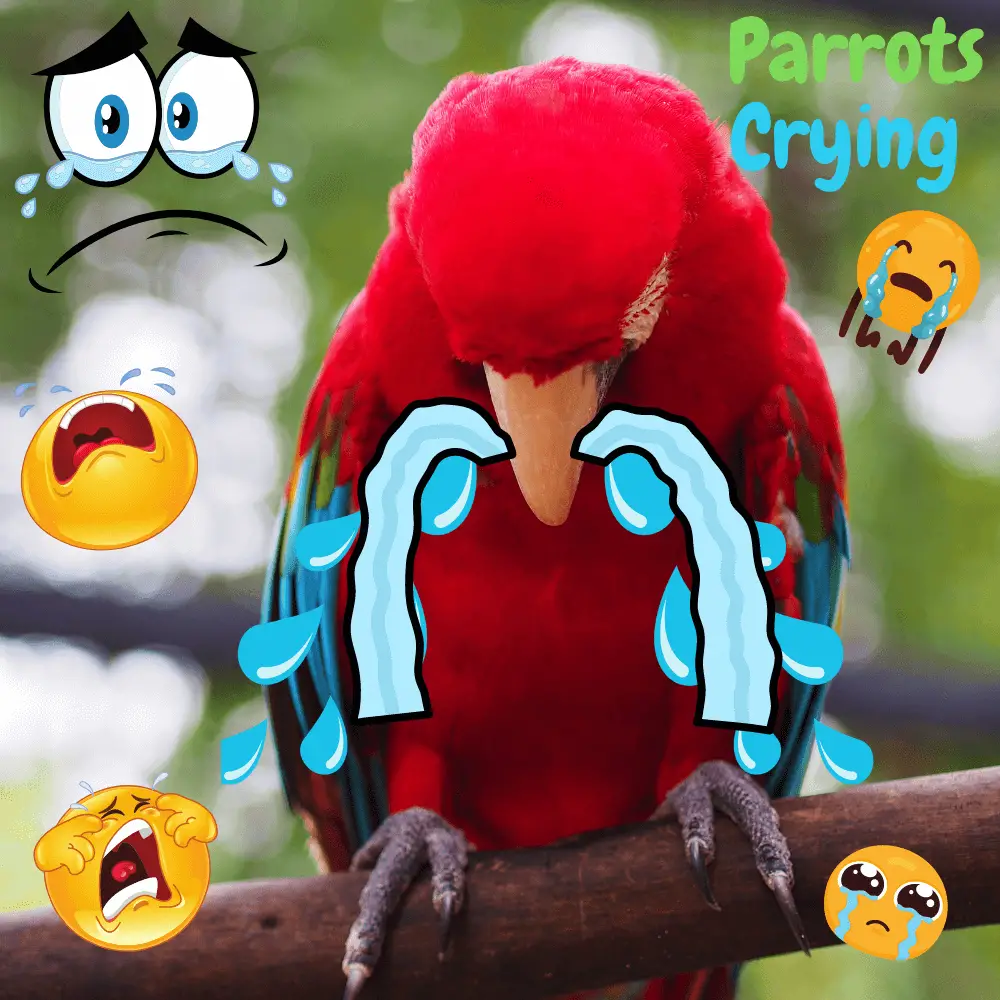
Questions and Answers
Question: Should people keep birds as pets?
Answer: If a person wants a bird, and if that person is prepared and ready to properly care for the bird, there is no reason why he should not have one. Just as there is no reason why a well-prepared and dedicated dog or cat owner should not be able to have his pet. If someone neglects the bird or doesn’t care for it properly, maybe they shouldn’t have one.
Question: Is it fair to keep a bird as a pet?
Answer: It depends. For some people, keeping a pet bird is beneficial for both humans and birds. However, some people and birds are simply not made for each other, and for these people, this is not right.
Question: Can a budgie and a lovebird be housed in the same cage?
Answer: Generally speaking, it is not good to keep lovebirds and budgies in the same cage. Lovebirds can be aggressive toward other birds, and their beaks can cause serious damage.
Question: Can the Cockatiels and Green Cheek Conures be accommodated together?
Answer: You can have both, but they don’t have to be housed in the same cage. Conures are quite strong and could hurt the cockatiel. You can have both, but they need to be in separate cages, and keep a close eye on them if they’re outside at the same time.
Macaws Released Into The Wild
SOURCE: BBC Earth


